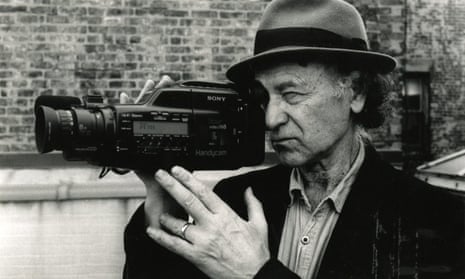Hailed as “the godfather of American avant garde cinema”, Jonas Mekas led an extraordinary, multi-hyphenated career whose wide-ranging influence must have proved a challenge for a documentary to encompass. When Mekas arrived in New York as a Lithuanian exile in 1949, the first thing he bought was a Bolex camera. For the displaced immigrant, when language faltered images became a means of communication.
As Fragments of Paradise charts Mekas’s professional milestones – a critic, a film-maker, a curator, and so on – what emerges most movingly is his philosophy of creative togetherness. In founding Film Culture magazine, the Film-Makers’ Cooperative, and later on the Anthology Film Archives, Mekas succeeded in building a nurturing space for those forgotten by the mainstream. It’s the kind of community-oriented work reflecting the belief that, for him, the home is the cinema.
Besides his fostering and championing of an alternative film culture in New York, Fragments of Paradise also highlights his legacy as a pioneer of the “diary film”; unfortunately, compared with the fractured yet intimate spirit of Mekas’s best-known works such as Walden (1968), the conventional style of KD Davison’s direction is painfully apparent. While Mekas’s camera moves with the jagged energy of New York streets, this documentary boxes its array of starry interviewees – including luminaries such as John Waters and Martin Scorsese – in static, talking-head shots.
More seriously, this essentially hagiographic account fails to mention assertions by historian Michael Casper, who argued that Mekas had misrepresented his wartime activities, and that he had written for collaborationist magazines in Lithuania. Fragments of Paradise begins with the raw, never-before-seen footage shot by an elderly Mekas who wails to the camera, “What is me?” It is a complex and difficult question that the film is ultimately reluctant to fully interrogate, on both formal and analytical levels.
after newsletter promotion
